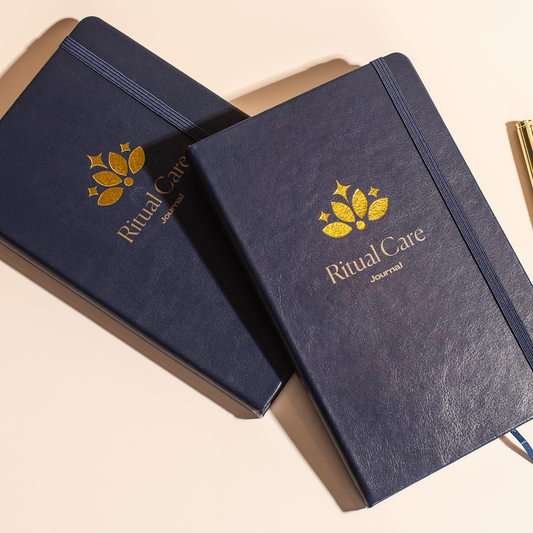The message pushed on us by our own government, health agencies, professional organizations and especially the food industry is this:
It’s your fault you are fat. Just eat less and exercise more.
But is that actually true? Do 70 percent of Americans wake up every day thinking, “I want to be fat. How can I eat more and exercise less today?” Are we all really just lazy gluttons who love to pig out and lay around on the couch?
Hardly.
There’s something much more insidious and dangerous at the root of The United States of Diabesity. Here are the real causes of obesity and the evidence that proves each to be true.
David Ludwig from Harvard found that sugar lit up the addiction center in the brain and induced cravings and hunger in obese men. More stunning was that he used two trick milkshakes that had the same amount of calories, fat, protein, and carbs and they tasted exactly the same. The only difference was that one of the milkshakes had a special starch that raised blood sugar quickly while the other had a slowly absorbed starch. The high starch/sugar milkshake was the one that activated the brain’s ground zero for addiction, the nucleus accumbens.
The food industry and government mantra that all calories are the same, that it’s all about moderation, just doesn’t jibe with the science. There are bad calories: sugar calories. They drive hunger, overeating, and a slow metabolism. Sugar and junk food are addictive.
They also act very much like big tobacco. In fact, they’re often the very same companies, such as Phillip Morris-Kraft, which changed their name to Altria, and RJR-Nabisco. In a hard-hitting analysis titled, The Perils of Ignoring History: Big Tobacco Played Dirty and Millions Died. How Similar Is Big Food?, the parallels between big tobacco and big food are hard to ignore.
The food industry emphasizes personal responsibility and vilifies critics, calling them food fascists in favor of a nanny state (don’t nannies protect kids?). These companies pay scientists like David Allison (who received $2.5 million from Coke and Pepsi) to “debunk” the dangers of soda and junk food.
They pledge self-regulation and engage in big lobby efforts. They introduce “safer” products (like lower calorie, diet, low fat, high fiber, whole grain), which are really no better and increase overall sales. They do not reduce overall sales of the “less safe” products. And they deny the addictive nature of products. They also heavily market their products to kids (remember Joe Camel?).
If you’re interested in learning more, all of this was presented in the powerful documentary, Fed Up.
So, with sleight of hand, great public relations, and misleading partnerships, they manipulate the truth and try to convince everyone (especially the government and the media) that they’re doing the right thing. A new study by Dr. Ken from George Washington University peeled back the deceptive practices of the food industry.
The food industry solution is to get people to buy more stuff, not less, specifically more of their low- or no-calorie options, which have been shown to cause obesity and diabetes. But sales of their full-calorie, full-sugar, and full-fat options continue to grow. Dr. Ken examined two key food industry partnerships, Alliance for a Healthier Generation (Clinton Foundation) and the Partnership for a Healthier America. After studying the actual behaviors and initiatives, she said that they should be called instead, “A Partnership for a Healthier Bottom Line.”
The partnerships, which I believe were done in good faith by the nonprofits wanting to get America healthy, actually did nothing to change things. In fact, things got worse. From 2006 to 2011, the big companies that sell one quarter of the junk in America increased their sales from “healthier” products by $1.25 billion. And sales for higher sugar, higher calorie products also increased by $278 million in the same period. So much for a healthier America.
Even worse is how pervasive and insidious the food industry is in our government policies and in the very organizations entrusted with protecting our health and guiding us with good science.
The dietary guidelines from the government are corrupted by industry influence—there is no evidence that every American should drink three glasses of milk a day. And the scientists on the committees that advise the government often work for the industry. Recently, there was an 80-page summary of the dangers of sugar in the scientific report to the USDA, which determines our dietary guidelines. It was completely omitted from the final government report and the dietary guidelines. And most of the food and food marketing advice from The Institute of Medicine, an independent scientific body that advises the government on health policy, has been completely ignored.
The American Nutrition and Dietetic Association (AND) that represents dieticians are completely corrupted by the food industry. New policies prohibit pictures of the exhibit hall at conventions (because big food has taken over the floor). Forty percent of their funding comes from big food. McDonald’s provides free lunch (the only option) at their conventions. And the Corn Refiners of America sponsor “scientific” panels on sugar.
The American Heart Association (AHA) gets $300,000 per endorsement for food products. That’s why you see the AHA seal of approval on processed oat cereals with six different kinds of sugar. And the American Academy of Family Practice receives funding from Coke. Who can we really trust anymore?
Health, too, is contagious, and the data support this. By improving our environment, getting junk out of homes, schools, and workplaces, creating more opportunities for play, fun, and movement, and by using social connections—friends, small groups and faith-based communities, we can create dramatic shifts in health.
I was a co-creator of The Daniel Plan, which helped 15,000 overweight members of the Saddleback Church lose 250,000 pounds in a year by doing it together—catching skinny. From Kenya to Kentucky, Microclinic International has proven, in the real world, that getting people to support each other works. Bell County, Kentucky has some of the highest rates of obesity and type 2 diabetes in the country. After the 40-week pilot program, 95 percent of the participants had dramatically improved blood pressure, cholesterol, blood sugar, waist circumference, and weight (BMI). Mexico changed its food polices based on what works in other countries to reduce obesity: end food marketing to kids, get junk out of schools, tax soda and junk food, and make food labels clear. These are polices that work, and many of which the Institute of Medicine supports.
It’s time to stop blaming the fat person and look at the real science behind why we are a fat nation (and increasingly, a fat world). We need to hold the food industry accountable, hold the government accountable, and have truly independent science. And we need to get healthy together. Forget individual willpower. We need a social cure for a social disease.
*Editor’s Note: The information in this article is intended for your educational use only; does not necessarily reflect the opinions of the Chopra Center's Mind-Body Medical Group; and is not a substitute for professional medical advice, diagnosis, or treatment. Always seek the advice of your physician or other qualified health providers with any questions you may have regarding a medical condition and before undertaking any diet, supplement, fitness, or other health program.
It’s your fault you are fat. Just eat less and exercise more.
But is that actually true? Do 70 percent of Americans wake up every day thinking, “I want to be fat. How can I eat more and exercise less today?” Are we all really just lazy gluttons who love to pig out and lay around on the couch?
Hardly.
There’s something much more insidious and dangerous at the root of The United States of Diabesity. Here are the real causes of obesity and the evidence that proves each to be true.
- The food America is served is biologically addictive. Because of this, willpower is that much more difficult to control.
- The food industry deliberately creates addictive products (nearly 600,000) and lies about the science behind it.
- The food environment is toxic and the food industry pretends to be part of the solution while actually making us sicker and fatter.
- Government and “independent” professional organizations like the American Nutrition and Dietetic Association (AND) are corrupted by food industry money.
- Obesity and chronic disease (diabetes, heart disease, cancer) are contagious, and we need a public health campaign, policy changes, and community-based solutions to cure them.
Obesity Cause #1: Food Addiction
The science behind food addiction is clear. In animal studies, rats work eight times harder to get sugar than they work to get cocaine. The authors of one study said, “Cocaine reward pales in comparison to sugar.” Another study found that rats continue to eat sugar even after they start to get electric shocks to deter them. When rats addicted to sugar are given a drug to block the effects of heroin (naltrexone) it makes them go into immediate withdrawal.David Ludwig from Harvard found that sugar lit up the addiction center in the brain and induced cravings and hunger in obese men. More stunning was that he used two trick milkshakes that had the same amount of calories, fat, protein, and carbs and they tasted exactly the same. The only difference was that one of the milkshakes had a special starch that raised blood sugar quickly while the other had a slowly absorbed starch. The high starch/sugar milkshake was the one that activated the brain’s ground zero for addiction, the nucleus accumbens.
The food industry and government mantra that all calories are the same, that it’s all about moderation, just doesn’t jibe with the science. There are bad calories: sugar calories. They drive hunger, overeating, and a slow metabolism. Sugar and junk food are addictive.
Obesity Cause #2: The Food Industry Designs Addictive Products
In his brilliant piece of investigative journalism, Salt, Sugar and Fat, New York Times reporter, Michael Moss uncovered, through more than 300 interviews with food industry insiders, that the food industry deliberately creates addictive products. They have “taste institutes” and hire “craving experts” and have them find the “bliss point” of foods in order to create “heavy users” and get more “stomach share.”They also act very much like big tobacco. In fact, they’re often the very same companies, such as Phillip Morris-Kraft, which changed their name to Altria, and RJR-Nabisco. In a hard-hitting analysis titled, The Perils of Ignoring History: Big Tobacco Played Dirty and Millions Died. How Similar Is Big Food?, the parallels between big tobacco and big food are hard to ignore.
The food industry emphasizes personal responsibility and vilifies critics, calling them food fascists in favor of a nanny state (don’t nannies protect kids?). These companies pay scientists like David Allison (who received $2.5 million from Coke and Pepsi) to “debunk” the dangers of soda and junk food.
They pledge self-regulation and engage in big lobby efforts. They introduce “safer” products (like lower calorie, diet, low fat, high fiber, whole grain), which are really no better and increase overall sales. They do not reduce overall sales of the “less safe” products. And they deny the addictive nature of products. They also heavily market their products to kids (remember Joe Camel?).
If you’re interested in learning more, all of this was presented in the powerful documentary, Fed Up.
Obesity Cause #3: Food Industry Pretends to Help but Creates Toxic Food Environment
Here’s the simple truth: Food companies are in business to make money. If people consume fewer products, they lose.So, with sleight of hand, great public relations, and misleading partnerships, they manipulate the truth and try to convince everyone (especially the government and the media) that they’re doing the right thing. A new study by Dr. Ken from George Washington University peeled back the deceptive practices of the food industry.
The food industry solution is to get people to buy more stuff, not less, specifically more of their low- or no-calorie options, which have been shown to cause obesity and diabetes. But sales of their full-calorie, full-sugar, and full-fat options continue to grow. Dr. Ken examined two key food industry partnerships, Alliance for a Healthier Generation (Clinton Foundation) and the Partnership for a Healthier America. After studying the actual behaviors and initiatives, she said that they should be called instead, “A Partnership for a Healthier Bottom Line.”
The partnerships, which I believe were done in good faith by the nonprofits wanting to get America healthy, actually did nothing to change things. In fact, things got worse. From 2006 to 2011, the big companies that sell one quarter of the junk in America increased their sales from “healthier” products by $1.25 billion. And sales for higher sugar, higher calorie products also increased by $278 million in the same period. So much for a healthier America.
Obesity Cause #4: Government and Nonprofit Health Organizations Are Corrupted by the Food Industry
The food industry “partnered” with Michelle Obama for her Let’s Move! campaign, and agreed to take 1.5 trillion calories out of the food supply. Sounds good, but that’s 14 calories a day or one bite of a Pop Tart. And how do they do it? Add more diet or lower calorie products (which still cause obesity and diabetes) and make Oreos 90 calories instead of 100. It’s still addictive and still junk.Even worse is how pervasive and insidious the food industry is in our government policies and in the very organizations entrusted with protecting our health and guiding us with good science.
The dietary guidelines from the government are corrupted by industry influence—there is no evidence that every American should drink three glasses of milk a day. And the scientists on the committees that advise the government often work for the industry. Recently, there was an 80-page summary of the dangers of sugar in the scientific report to the USDA, which determines our dietary guidelines. It was completely omitted from the final government report and the dietary guidelines. And most of the food and food marketing advice from The Institute of Medicine, an independent scientific body that advises the government on health policy, has been completely ignored.
The American Nutrition and Dietetic Association (AND) that represents dieticians are completely corrupted by the food industry. New policies prohibit pictures of the exhibit hall at conventions (because big food has taken over the floor). Forty percent of their funding comes from big food. McDonald’s provides free lunch (the only option) at their conventions. And the Corn Refiners of America sponsor “scientific” panels on sugar.
The American Heart Association (AHA) gets $300,000 per endorsement for food products. That’s why you see the AHA seal of approval on processed oat cereals with six different kinds of sugar. And the American Academy of Family Practice receives funding from Coke. Who can we really trust anymore?
Obesity Cause #5: Obesity and Chronic Disease Are Contagious
You are 57 percent more likely to be overweight if your friends are overweight than if your parents are overweight. And your larger social networks matter, too. You are more likely to be overweight if your friend’s friend is overweight, 20 percent more likely. If you live around fast food joints, you are also more likely to be obese. I call this sociogenomics, the power of our social networks to affect our health.Health, too, is contagious, and the data support this. By improving our environment, getting junk out of homes, schools, and workplaces, creating more opportunities for play, fun, and movement, and by using social connections—friends, small groups and faith-based communities, we can create dramatic shifts in health.
I was a co-creator of The Daniel Plan, which helped 15,000 overweight members of the Saddleback Church lose 250,000 pounds in a year by doing it together—catching skinny. From Kenya to Kentucky, Microclinic International has proven, in the real world, that getting people to support each other works. Bell County, Kentucky has some of the highest rates of obesity and type 2 diabetes in the country. After the 40-week pilot program, 95 percent of the participants had dramatically improved blood pressure, cholesterol, blood sugar, waist circumference, and weight (BMI). Mexico changed its food polices based on what works in other countries to reduce obesity: end food marketing to kids, get junk out of schools, tax soda and junk food, and make food labels clear. These are polices that work, and many of which the Institute of Medicine supports.
It’s time to stop blaming the fat person and look at the real science behind why we are a fat nation (and increasingly, a fat world). We need to hold the food industry accountable, hold the government accountable, and have truly independent science. And we need to get healthy together. Forget individual willpower. We need a social cure for a social disease.
*Editor’s Note: The information in this article is intended for your educational use only; does not necessarily reflect the opinions of the Chopra Center's Mind-Body Medical Group; and is not a substitute for professional medical advice, diagnosis, or treatment. Always seek the advice of your physician or other qualified health providers with any questions you may have regarding a medical condition and before undertaking any diet, supplement, fitness, or other health program.






















